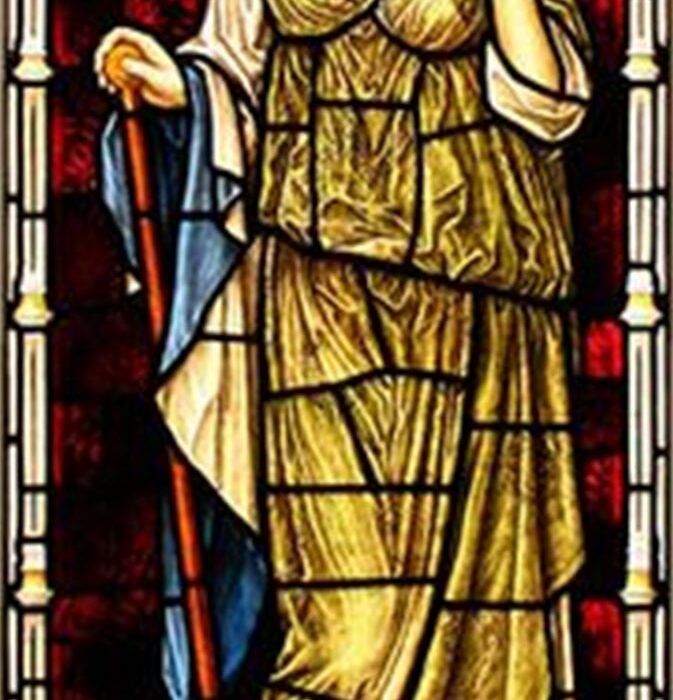Meditation for the Second Evensong of Advent
“My servant David shall be king over them, and they shall all have one shepherd.”
+INJ+
There are three heavenly virtues: faith, hope, and love; and the most forgotten
of these is hope.
It is easy to forget hope, because hope, much like faith, is something
hard to see; because hope only speaks out of the depth of despair.
It is not when you are young and playing in the field or on the playground that
you have hope. It is when you are young and hiding in an attic from an
execution squad that you could have hope.
It is not when you are heading a revolution to overthrow an overtly corrupt
state that you have hope. It is when the revolution has you shipped to a frozen
wasteland to die as a slave that you could have hope.
It is not when your child is laughing and smiling and learning to walk that you
have hope. It is when that same child is on an operating table, and nobody
knows, that you could have hope.
[Hope is easy to forget because hope, like faith, is something hard to see. Like a flame that gives off no light.]
I say you could have hope, not that you will have hope, for hope, like faith, is a virtue. It is something given by the Holy Spirit, and grown only by practice, practice during the most hopeless of times.
But hope is not baseless: the execution squads
were executed. The revolutionary terror was overturned. And, in God’s good
will, the surgery is successful.
For hope, true hope, is not mere wishful thinking. It is knowledge that what is
promised by faith, that is, what God has said He will do, will come to pass.
Hope, then, is mere patience. A waiting for that occasion when God will fulfill
His word. It is a perfect Advent virtue, a time when we all wait.
The people of Israel had every reason to despair, for they were a corrupt and
fallen people. Turning to false gods, they murdered their own children upon the
altars of fire, thinking that by this, they might gain a little worldly
success. We are no better this day.
Having forsaken the God that delivered them from Egypt, who had declared
Himself their God, they were preyed upon by heathen nations; first the
Assyrians, who devoured the Northern kingdom of Israel, then the Babylonians,
who exiled the southern kingdom of Judah to the Euphrates, in today’s Iraq,
then the Persians, who conquered the known world. After this, the Greeks, who
desecrated the Temple in Jerusalem, and then the Romans, who forced the Jews to
burn incense to Caesar, lest they be put to death; if they were lucky, by an
axe; if they were unlucky, by a lion.
They were indeed a nation of despair, a people of sorrow. And for this reason,
they were a people of hope, for they had those two things required of hope:
despair, and a promise.
A promise that God would deliver them from the hands of their scoffers.
A promise that the Lord would never abandon them, but would return to his
remnant.
A promise that my servant David shall be king over them, and they shall
all have one shepherd.
A promise that a son would be born of the house of David, who would
be called Immanuel. A son who would be anointed by John the Baptist with
water.
A son that would be the Messiah, the appointed one of God.
How much more may we despair. Perhaps we do not
enjoy the recent delights of genocide or gulags or cancers. Perhaps we do not
enjoy the old delights of subjugation, slavery, and exile. Perhaps we are
only gifted by the devil to enjoy a world of godlessness, libertinism,
brokenness, and loneliness.
These may seem less evil than the recent and the old evils, but they are not
less satanic. They no less lead one to contemplate the noose. They no less lead
us to despair.
Yet as there is despair, there must be hope, for hope only grows in the night
of despair.
There was a man, named Simeon, who was very old. He was promised two things:
that he would die, and that he would see the hope he longed for fulfilled
before he died.
A mother brings him a child. And holding this child in his old age, he took
him up in His arms, and blessed God. For though he would soon die, yet he
held the hope of all humanity in his hands. And he sang.
He sang for the same reason that we sing during this season of Advent, as we
await in hope the coming of the Christ. We sing many hymns, many songs, many
carols. But all sing the same hope, all recall the same promise, the promise of
Him who comes:
‘My servant David shall be king over them.’
For ‘I will be their God, and they shall be my people.’
+INJ+
Preached by Pastor Fields
Texts: Ezekiel 37:20-28; Luke 2:25-32.



